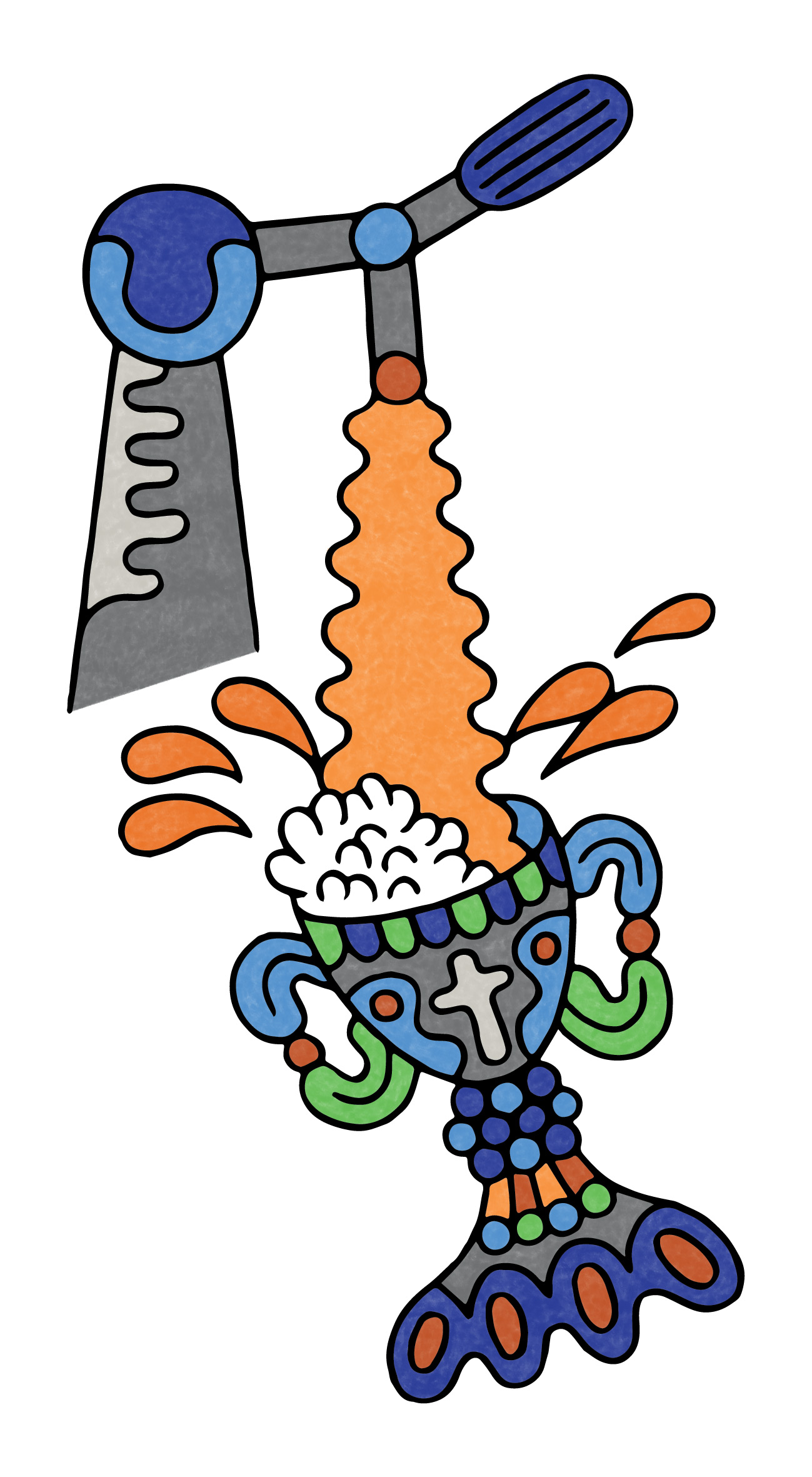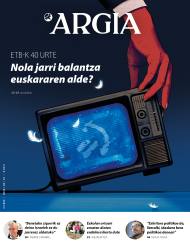Easter and Ramadan

I have been in the Cooperation Network of my people for years. In their Housing Union we gather people from different backgrounds and there is a large Muslim community. This year, on the occasion of Ramadan, one night of the entire Mutual Assistance Network we celebrated Ramadan breakfast. This has generated a debate because celebrations that for some have a religious meaning should not have a place in a secular organization like ours.
Religion is certainly an interesting subject and manifests many contradictions. This year we celebrated the Ramadan breakfast to strengthen the bond with our Muslim colleagues, even because behind a tradition like this there are values that we find interesting: strengthening the community, strengthening the affinity… In this sense, I am clear that all religions have dominant and oppressive contents, but that, in turn, they retain within them values that can favor the liberation struggle. See the Theology of Liberation, the labor movement and the relationship between red priests, the importance of the Christianity of ENAM, the importance of some religions in the processes of decolonization... However, in these cases, care must be taken so that the exercise of solidarity and fraternity does not become an apology of a particular religion.
It is easy to point out religious elements with Islam. But “native” Basques are culturally totally Christian
On the other hand, for those of us who consider ourselves laity, it is easy to point out with Islam elements of a religious nature, because culturally they are totally strange to us. But if we remove the ethnocentric colonial glasses we will realize that we are “native” Basques, secularism, culturally totally Christian. And we unconsciously reproduce Christian behavior. Without going too far, in Easter no union assembly has been held, all our festivities bear the name of the Christian saints…
Let us acknowledge that the Basques so far, in general, have Christian roots and today we are still culturally Christian and Catholic. The Aberri Eguna is celebrated at Easter, takes out the accounts. It is not a question of completely denying these roots and throwing them away: as with Islam and the other religions, beyond the conservative shell, in our Christian traditions there are values and customs with transformative potential.
It is undeniable that Euskaldunization is becoming increasingly multicultural and multi-million. And so on! Otherwise, vasquity will be depleted in a few decades. This means that religiosity will have a great weight in the process of reconstructing vascuity and that we should begin to reflect on this slippery topic.
Bidali zure iritzi artikuluak iritzia@argia.eus helbide elektronikora
ARGIAk ez du zertan bat etorri artikuluen edukiarekin. Idatzien gehienezko luzera 4.500 karakterekoa da (espazioak barne). Idazkera aldetik gutxieneko zuzentasun bat beharrezkoa da: batetik, ARGIAk ezin du hartu zuzenketa sakona egiteko lanik; bestetik, egitekotan edukia nahi gabe aldatzeko arriskua dago. ARGIAk azaleko zuzenketak edo moldaketak egingo dizkie artikuluei, behar izanez gero.
Sare Herritarrak antolatuta, pasa den urtarrilaren 11n Bilboko kaleak bete zituen manifestazio jendetsuaren ondoren, berriz sortu da eztabaida, euskal presoei salbuespen legeriarik aplikatzen ote zaion. Gure iritzia azaltzen saiatuko gara.
Espetxe politikan aldaketa nabarmena... [+]
Duela gutxi think tank izateko jaioa omen den Zedarriak bere 6. txostena aurkeztu zuen. Beren web orrialdean azaltzen dutenaren arabera, zedarriak ebidentea ez den bidea topatzeko erreferentziak dira. Hots, hiru probintzietako jendarteari bidea markatzeko ekimena. Agerraldi... [+]
The time has come for us to enrol in schools in the Basque Country for the 2025-26 academic year, and in many homes the youngest of the household will take a new step soon, in September, which is schooling. Proud of the Basque Public School The members of Topagune are firmly... [+]
Since the adoption of the new Education Law for Álava, Bizkaia and Gipuzkoa, we are hearing/reading again and again that education will be free from now on. We have listened to different actors, including the Department of Education, and in the interviews we offer to the media,... [+]
At the beginning of the month he did III. Congress in Pamplona. It is said to be the “ordinary congress” that serves to draw “non-ordinary conclusions”, or at least that is how they have received Zutunik in the paper, proposed by the leadership and unanimously approved... [+]
There are many ways to gain power; not all are beautiful. There are those who want to divide the power and the responsibility that it entails with it, who seek authority. Others have a lot of respect for him and the fact that each step is so measured makes them unable to make a... [+]
A conference for architects has just been held in Madrid to discuss the crisis of the professional architect. They have distinguished the traditional and contemporary way of being an architect. What is traditional? From the epic architect who appears in The Brutalist, where... [+]
On February 3rd, the time has begun to pre-enroll our children and young people in schools, and as every year we would like to remind you why we do not think it is a good idea to enroll them in religion. Last year we finished the article saying that “many of you will be... [+]
From the Association of Parents of the Instituto Arratia Small Tram we want to encourage reflection on the use of screens in the learning community.
Lately there is a lot of concern about the impact of screens on children and adolescents. This responsibility extends from... [+]
Bai, bai, holaxe. Ez naiz harago joatera menturatzen. Pleonasmo bat dela? Tautologia bat agian? Baliteke, baina egia-oste deitzen dioten garai honetan, oinarri-oinarrizko egitateak beharrezkoak dira. Begira, bestela, “Ez da ez!” lelo indartsuari. Bagenekien hori... [+]
I had a friend who worked at Porcelana Irabia until they closed, and every time we went to a restaurant or a bar he looked at the mug and the ass of the dish to find out where the piece was made. I do the same thing when I go to the fairs of old things: I look where it is made,... [+]
Azken boladan gero eta gehiago entzuten dugu gazte askok etxebizitza erosteko ahalmenik ez dugula. Batzuetan, badirudi ez dagoela beste gairik; egia da gai serioa dela. Niri neuri ere, 31 gertu izan arren, oraindik pixka bat falta zait neurea izango den etxebizitza lortzeko... [+]
An ad jumps on my mobile in a long time. He promises to color my world. They say that with this app I will be able to buy like the millionaires. Cheap products, very cheap, even free. They have played on the marketing target that the sociological historical moment demands. This... [+]
There are concepts that appear everywhere during certain periods, which also become mantras. They appear to us in a positive and necessary way, without too much debate and without thinking about them. It seems to me that one of these mantras is internationalization, which has... [+]


















